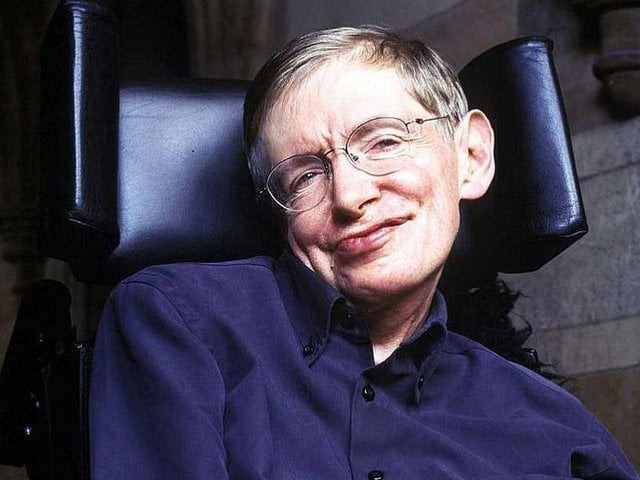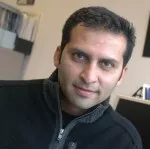“They’re named black holes because they are related to human fears of being destroyed or gobbled up. I don’t have fears of being thrown into them. I understand them. I feel in a sense that I am their master.”
These are the words of Stephen Hawking who passed away on March 14th at the age of 76. He was not afraid of death. And why would he be? He was told, at the age of 22, that he was suffering from a rare motor neuron disease and was given only a couple of years to live. But nobody loved defying odds as much as Hawking did, and so instead, he lived another five decades and became one of the most celebrated physicists of our time. His extraordinary abilities in physics were matched only by his indomitable spirit to live. As he put it:
“I’m not afraid of death, but I’m in no hurry to die. I have so much I want to do first.”
https://twitter.com/adamcbest/status/973796889849139200
Indeed, Hawking’s work explored some of the toughest challenges of modern cosmology. In 1970, working with mathematician Roger Penrose, he used Albert Einstein’s General Relativity theory to postulate that our entire universe started from a state of physical singularity – a point of infinite density. These singularities are considered to be at the centers of individual black holes as well. Black holes are objects that have collapsed to such high densities that not even light can escape from them, hence the term “black hole”. Fascinatingly, astronomers have confirmed the existence of black holes through observing material orbiting and falling into this dark abyss. In fact, there are black holes at the centers of all spiral galaxies, including our own Milky Way!
Hawking’s most famous work imagined conditions right at the edge of a black hole. To understand this, he brought together quantum physics – the theory that explains happenings on the smallest scales – and Einstein’s Relativity, the theory that explains gravity on the largest scales, to predict that black holes would emit heat and then eventually evaporate. This heat is now called Hawking Radiation. This process is slow and would take an enormously long time for a regular black hole to disappear. However, if there exist tiny black holes, then they can disappear in a relatively short time. This is a beautiful and creative theory. Unfortunately, so far, this radiation has not been detected, and the reason why Hawking never got the Nobel Prize.
The only thing lacking was the Nobel Prize for the great Stephen Hawking for which he said, ‘The Nobel is given only for theoretical work that has been confirmed by observation. It is very, very difficult to observe the things I have worked on.’ #NYT
— narayan wagle (@narayanwagle) March 15, 2018
Despite the complex nature of his work, Hawking became a household name in 1988 with the release of his popular science book, A Brief History of Time. It simplified some of Hawking’s theories for a popular audience. The book sold more than ten million copies and has been translated in over 40 languages. But it is also a tough book for people unfamiliar with physics, and it is sometimes referred to as the greatest unread book in history.
Hawking’s amazing personal story, no doubt, played a role in the popularity of the book. In order to speak, he had to feed the words into a computer through small motions of his thumb, and then later, with the movement of his cheeks. He could not move his body, and yet, he was exploring the universe like no one else in the world.
His synthesised voice itself became a cultural symbol. He could be seen playing poker with holograms of Isaac Newton and Einstein on Star Trek: The Next Generation. I was doing my undergraduate in physics and astronomy at the time (of course, I was a Trekkie), and I remember being blown away by this scene.
He also appeared multiple times on The Simpsons and Futurama, and more recently on The Big Bang Theory. Indeed, he himself had a healthy sense of humor. Rock group, Pink Floyd, used his famous synthesised voiced in their song, Keep Talking. And of course, his life was the subject of the 2014 movie, The Theory of Everything, where Hawking was brilliantly played by Eddie Redmayne.
When one genius met the other. RIP the truly inspirational Stephen Hawking. #BigBangTheory pic.twitter.com/PLhBppeUNC
— E4 (@E4Tweets) March 14, 2018
There are many ways to be inspired by Hawking. I want to highlight his willingness to accept that he was wrong. He made a number of statements about philosophy, religion, and the nature of extra-terrestrials that I don’t agree with. However, when it came to science, he could set aside his ego to accept results that challenged his long-held views. His own theory of Hawking Radiation predicted that information would permanently be lost with the evaporation of a black hole. This was a contentious debate in the scientific community. When it was shown that this might not be the case, he made a public announcement about him being wrong. Science is a humbling endeavour. Many of our favourite theories turn out to be wrong. But to admit the mistake, that takes courage.
It is interesting to note that Hawking’s birthday, January 8, 1942, fell on the day Galileo Galilei died and his death anniversary falls on the same day Einstein was born, March 14, 1879. Not just this, but March 14th represents a mathematical holiday, Pi-Day, too. These are of course mere coincidences but these three intellectuals are forever fused together, since everything in the cosmos is connected.
Stephen Hawking was born January 8, 1942, on the 300th anniversary of Galileo's death. He died today, March 14th, on the anniversary of Einstein's birth. Time is circular - no beginning, no end.
— Warren Leight (@warrenleightTV) March 14, 2018
Pakistan is seeing a growing number of science and astronomy societies in the country. For those interested in the cosmos, I will leave you with some advice from Hawking:
“Remember to look up at the stars and not down at your feet. Try to make sense of what you see and wonder about what makes the universe exist. Be curious. And however difficult life may seem, there is always something you can do and succeed at. It matters that you don’t just give up.”
Hawking’s death is truly a loss for not only the scientific community but the world in general. We have lost one of the most brilliant minds and he will forever be missed.



COMMENTS
Comments are moderated and generally will be posted if they are on-topic and not abusive.
For more information, please see our Comments FAQ